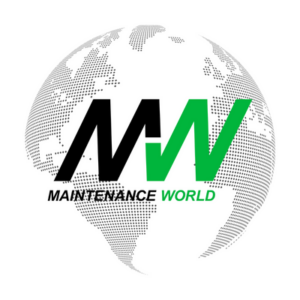Maintenance of Bearing Seals
The McNally Institute
Centrifugal pump ball bearing seals 13-9
Bearings are normally lubricated with either oil or grease. Oil mist is another alternative, but recent fugitive emission regulations are making this form of bearing lubrication less desirable. According to the SKF Bearing Company, both oil and grease have a useful life of thirty years at thirty degrees Centigrade (86°F). The Duriron pump company estimates that the L10 life of a radial ball bearing in their end suction centrifugal pump, operating at its BEP(best efficiency point), to be between one and three hundred years.
So what is going wrong with the lubricant and bearings in our pumps? We do not get a service life any where near those numbers. It turns out that most bearings fail prematurely for only two reasons:
- High heat that caused the lubricant to “varnish” and then form “coke” that will introduce solids into the lubricant.
- Contamination of the lubricant by water, moisture and solids.
The water gets into the bearing from three different sources:
- Leakage from packing. As you know, packing leaks.
- Moisture from a water hose that is being used to wash down the base plate and general area because of packing and other types of leakage. If nothing leaked there would be no need for a water hose to wash down the area.
- Aspiration. A fancy name that means moisture in the air is penetrating into the bearing case when the housing temperature reduces.
Original equipment manufacturers traditionally use low cost grease and oil seals to prevent this ingress of moisture and solids. Take a look at the following diagram:
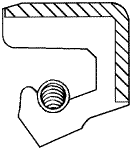 | The spring loaded grease or lip seal shown on the left is typical of the type supplied by these manufacturers and has a rated life of less than two thousand (2000) hours (83 days at 24 hours per day).The rubber lip will polish the corrosion resistant shaft, remove the protective oxide layer that has formed to protect the shaft from corrosion, and then proceed to cut a groove beneath the rubber lip. This is called “shaft fretting” and is explained in detail in paper 10-3 of this series. |
| Eighty three days is not a satisfactory life for anyone, so you are going to have to come up with an alternative to these short lived destructive seals. At the end of this paper I have attached a chart that was published by the Chicago Rawhide Company showing a life comparison between their seal and a competitor called The National Seal Company. At his writing Chicago Rawhide is a division of the SKF Bearing Company of Sweden.Here are a couple of alternatives you should consider to replace the lip or grease seals that make no sense what so ever: | |
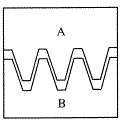 | The labyrinth seal is a non contacting shaft seal that works very well as long as the shaft is turning. It is very effective against packing leakage and water hoses, but not too effective against aspiration. Part “A” remains stationary in the bearing housing while part “B” turns with the shaftThis seal should not damage your shaft and is available in both a solid and split configuration. There are many materials and internal configurations available so investigate them carefully. |
 | Magnetic face seals have been around for many years. They take very little axial space and are very effective against moisture, water and solids.I should mention here that some people are uncomfortable having magnets that close to the bearings. |
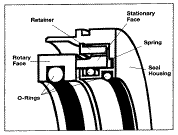 | Spring loaded face seals are the latest and probably the best alternative available. The can be purchased in a variety of materials and sizes and are available in the desired stationary seal configuration.They are effective against packing leakage, water hoses and aspiration, especially when used with a bearing case expansion chamber. Unlike grease or lip seals that will not damage your shaft or sleeve. |
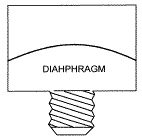 | There are several versions of a bearing case expansion chamber. Usually they are supplied with either a rubber or metal bellows.From cold to operating temperature, the bearing case pressure will increase about twelve to fourteen psi. (about one bar) The expansion chamber will keep this increase to below one psi. |
The majority of premature bearing failures can be prevented by following a few simple rules:
- Purchase quality bearings. Remember that there are a lot of counterfeit bearings out there, so be careful.
- Install the bearings correctly on a shaft that has been manufactured to the right finish and tolerance.
- Fill the bearings with the proper amount of grease or oil to the correct level. Be sure the pump is level before you do this.
- Install face seals to keep moisture and solids out of the bearing case.
- Install an expansion chamber in the bearing case filling connection.
- If you use oil, check the oil level on a regular basis
- Never cool a bearing outside diameter. It will shrink and over heat. If cooling is necessary, cool the oil never the bearing.
Related Articles
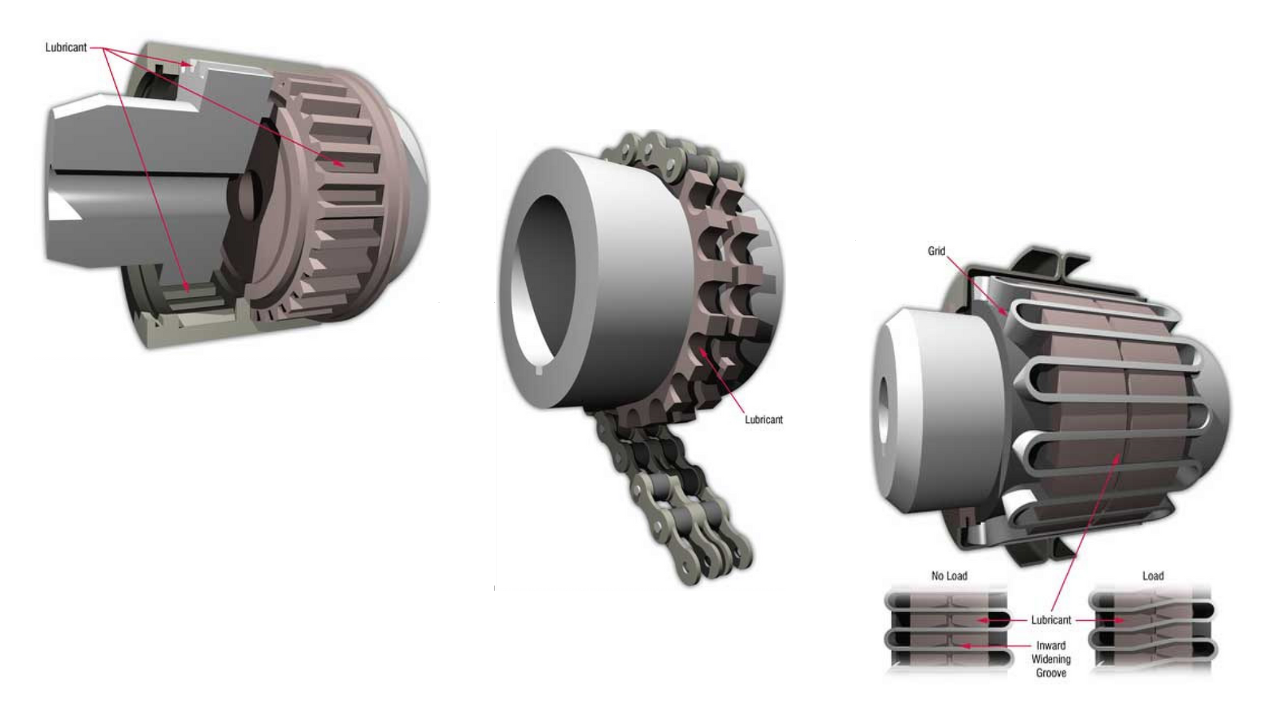
The Lubrication Requirements of Couplings

The Building Blocks to Creating an Effective Lubrication Program

Does Lubrication Belong in the CMMS?
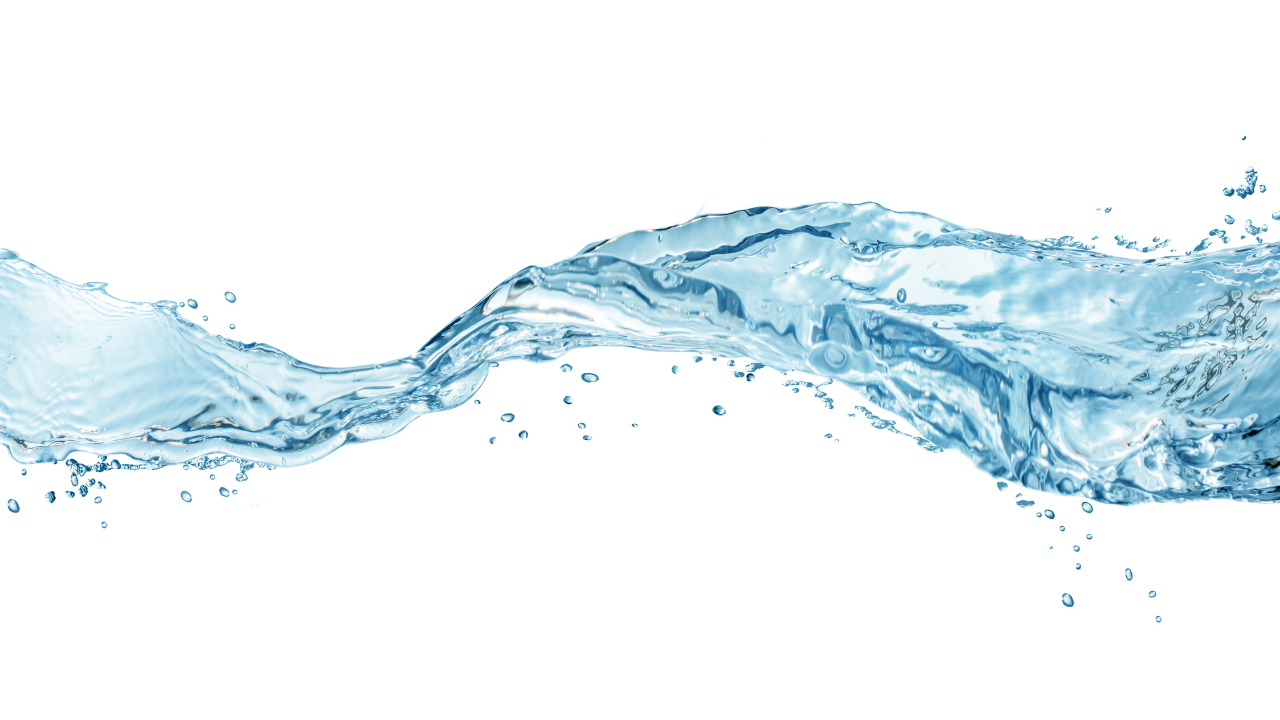
Water Contamination
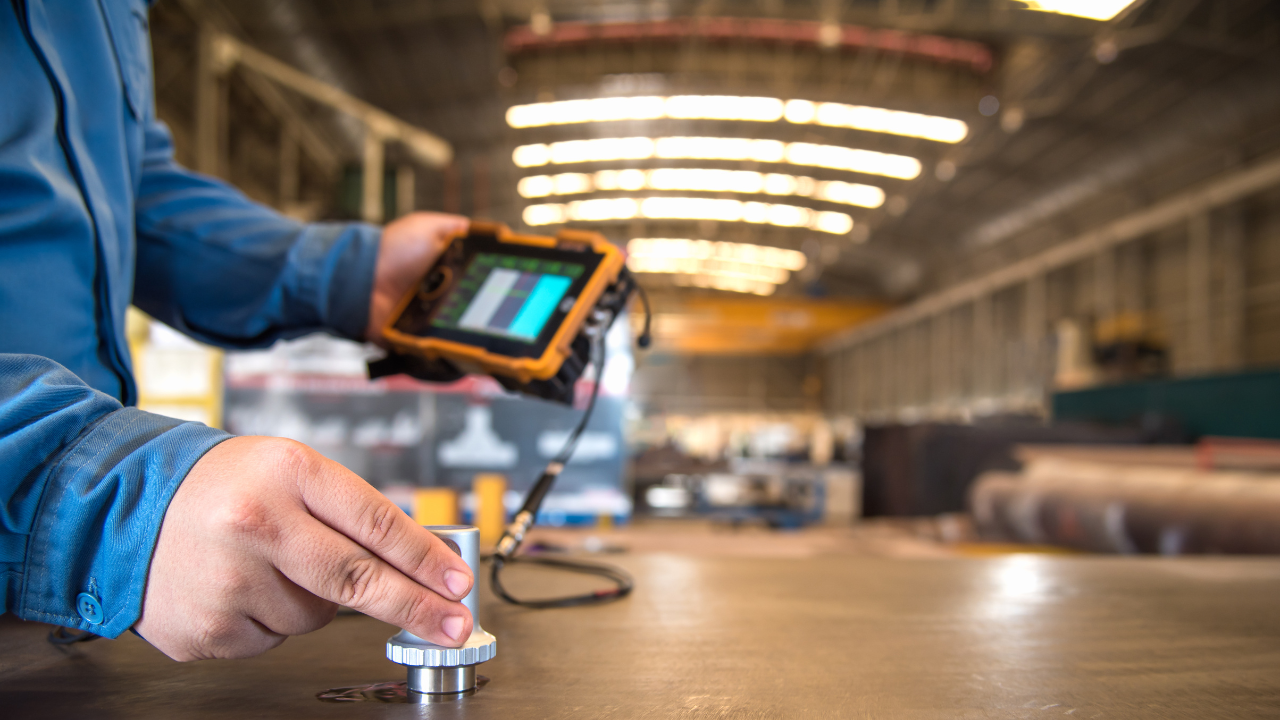
Ultrasound for Better Lubrication

Top Ten Ways Not to be World Class at Machinery Lubrication




